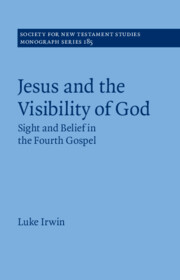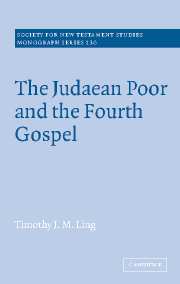Jesus and the Visibility of God
Although scholars have debated the link between empirical senses and belief in the Gospel of John, few have queried their own presuppositions about the invisibility of God. In this study, Luke Irwin establishes the value of God's physical incarnation for belief, arguing that the theological nature of belief derives from a God who makes himself physically visible in the world. Irwin builds on recent work on divine embodiment in the Hebrew Bible and New Testament and illuminates the Jewish context for John's Gospel. He also explains John's understanding of 'seeing' as a positive component of belief-formation and resolves the Johannine relationship between 'seeing' and 'believing'. Showing how God is the ultimate target of belief, Irwin argues that unless God becomes physically visible in Jesus, belief cannot be attained.
- Brings recent work on divine embodiment in the Hebrew Bible and New Testament to bear on Johannine scholarship
- Provides up to date analysis of the relationship between “seeing” and “believing” in John's Gospel
- Restores a theological telos to studies of John's Gospel by demonstrating how the relationship between belief and God arises from the text
Product details
January 2025Adobe eBook Reader
9781009477024
0 pages
This ISBN is for an eBook version which is distributed on our behalf by a third party.
Table of Contents
- Introduction
- Part I. God and Visibility:
- 1. 'My Lord and My God' In John 20:30–31
- 2. Divine Visibility
- 3. God on Earth
- Part II. Seeing God:
- 4. The Efficacy of Empirical Vision
- 5. Seeing Jesus and Seeing God
- Conclusion
- Bibliography.










